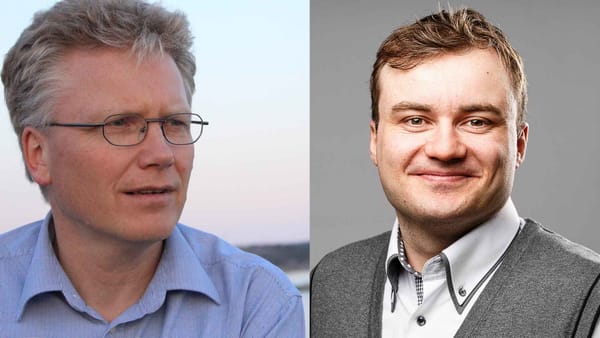German experts criticise growing influence of Saudi Arabia in e-sport




Professor Jens Junge, Director of the Institute of Ludology, and Dr. Timo Schöber, Head of E-Sport at the Institute of Ludology, Director Esportionary, criticise the growing influence of Saudi Arabia in E-Sport in a recent position paper. It's about moral conviction, fast money and sportswashing. A grassroots movement in Europe is outlined as a counterpoint.
The increased involvement of Saudi Arabia in the e-sports sector to diversify the local economy, for example through the announcement of the annual e-sports world championship "Esports World Cup" (GamesMarkt reported) and many other initiatives, are seen critically by Prof. Dr. Jens Junge, Director of the Institute of Ludology, and Dr. Timo Schöber, Head of the E-Sports Department at the Institute of Ludology, Director Esportionary. In a public statement, both have accordingly classified and commented on the most recent developments. Both have framed and commented on the latest developments in a public position paper.
Junge and Schöber are primarily concerned with the overall social, open-minded, peaceful and tolerant aspects of e-sports. "It becomes clear that the state, social and political orientation of Saudi Arabia is incompatible with the values of e-sports. This concerns especially the points of freedom, equality of all people, tolerance, peace and openness to the world," the statement reads. "As a result, it can be deduced that Saudi Arabia intends to use e-sports primarily as an instrument of power and propaganda, similar to traditional sports. Such an approach is not unusual for repressive and despotic states if the corresponding financial means are available." According to the report, the country's reputation and standing are to be improved by "sportswashing". The paper goes on to say: "The motives of the people who get involved with Saudi Arabia through e-sports are likely to be primarily economic. The country spends considerable funds to buy organisations and structures. It remains likely that this will increase in the future, as Saudi Arabia has laid out its own e-sports strategy until 2030."
"In social terms, this means that e-sports is continuously devaluing itself to a certain extent as far as moral and ethical aspects are concerned. It is noteworthy that Saudi Arabian involvement in e-sports led to considerable resistance from the e-sports community when the partnership between Riot Games and Neom collapsed in 2020. Comparable resistance has been absent in the most recent developments. This can be seen as an indication that some parts of e-sports now think less in terms of moral and ethical values and more in terms of monetary aspects," write Junge and Schöber.
It is concluded that a "grassroots" organisation is needed in Europe so that e-sports can retain its independence and evolve - and democratic and liberal values can be pursued. The EU supports the development of corresponding forms of organisation within the framework of the "European Grassroots Esports" project. In Germany, a congress entitled "Can Germany do grassroots e-sports?" will take place on 9 November 2023 from 12:30 pm in the Moneta of the Alte Münze, Am Krögel 2, in Berlin.
"A convincing and attractive structure with European values must be opposed to the attempt to capture and influence this new, forward-looking international sports field by the Saudi state fund," Junge and Schöber demand.
"E-sport stands for equality, tolerance and cosmopolitanism. Values that make e-sports so valuable and with which I grew up in this sport. What is currently happening, namely the sell-out of e-sports to dictatorships, is therefore a slap in the face for all those who honestly live e-sports - and have contributed to the growth of e-sports through serious commitment. Western e-sports must make a choice: Ethics and moral convictions or fast money and economic disorder," says Dr Timo Schöber.
Just as FIFA and the Olympic Committee have meanwhile been proven to be seriously corrupt in their internationally important decisions for the venues of their events in order to blatantly pursue one-sided political interests alongside economic interests, structures are developing in the international e-sports sector through Saudi influence that are fundamentally opposed to a liberal and European enlightened conviction. A convincing European response based on grassroots sport is needed," explains Prof. Dr. Jens Junge.
Saudi Arabia's ambitions in the esports segment, which have led to the current statement, are outlined thus: